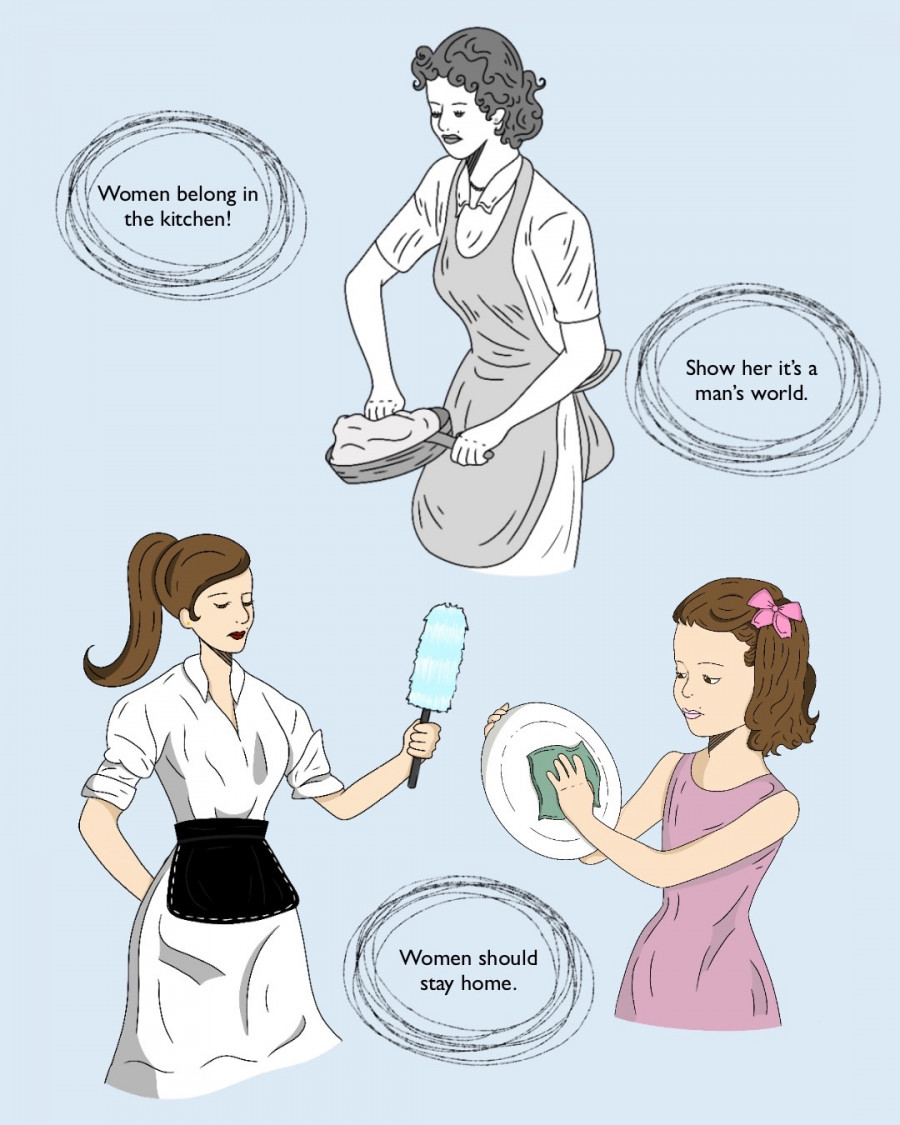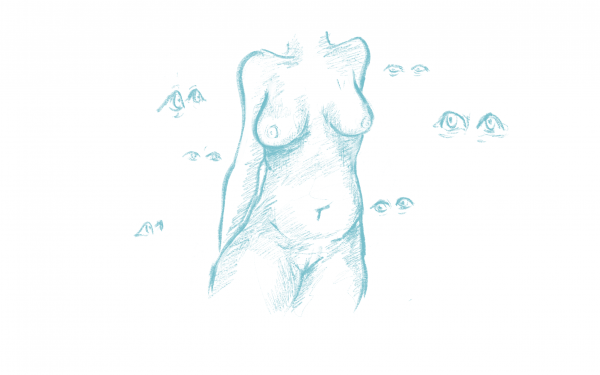Et tu, Brute?
The backstabbing nature of internalized misogyny and its effects on women’s safety
“Go make your dad a cup of tea!” I must have heard my grandma shout this across the room at my sister a million times.
The women in my household have toiled to fulfill the unrecognized labour of domestic work for generations. These instances of enforced standards on women within their household have resulted in a reinforcing cycle wherein women have imposed this pressure on each other.
The subconscious projection of gender stereotypes is dangerous because it is unaware of the underlying damage it causes. By belittling and bringing each other down, we are creating an environment of hostility against ourselves.For generations, almost every woman around me has been conditioned to follow “ladylike” conduct. To be docile, sensitive, and dress appropriately. Often it is propagated by elderly women of the family in Asia. However, these teachings that aim to foster “women’s safety” were surprisingly never imparted to me or my brother.
The women in my family were bombarded with warnings to not dress provocatively by my grandmother. She repeated aphorisms like “men will be men” and “cover yourself,” as if their bodies were of desirability only for the male eye. These commandments hovered like a constant cloud in my sister’s life.
All were shadowed under the ruse of women’s safety.
It was ironic that a society that valued women’s physical appearance so much, also enforced rules on their dressing. Yet, the main proponents of this violence, men—who are more than 90 per cent of the time the perpetrators of sexual violence—are largely left uneducated on this topic. They had no clue how to make the women around them feel safe in a society where gendered violence is prevalent.
This environment was not limited to the household. Growing up chants like, “you play like a girl” (as though that word was the definition of weakness) and “she‘s dressed like a whore,” were common in my experience.
What is now surprising to my adult self is that this internalization was often propagated by one’s friends and family. By condoning such behavior they not only impose regulations on themselves but often project the same onto others. These “friendly” jabs shadowed under the pretense of care do more damage than good.
The notion of an omnipresent morality around women's conduct feeds into the belief that women's development is deviant or deficient.
For example, similar reinforcements are felt in the sports world, where women are limited to “feminine” sports such as volleyball or softball. This further contributes to the perception of women as docile or submissive. Any shift from that is deemed as alien or unnatural.
This exclusion fosters a culture wherein women’s opinions and choices are trivialized and their lives are less valued. Their positions in society are disrespected and their existence is more susceptible to violence.
Research has indicated that these microaggressions and sexist comments create a culture of misogyny that allows for the nurturing of violence against women. The sexualization and marginalization of women, especially from visible minorities, have been shown to contribute to these instances of violence.
Investigating this violence often reveals a cycle where the initial hypersexualization, fetishization, and marginalization of these women in public perception contribute to their victimization.
Advocates of traditional gender roles in the East often attribute calls for gender equality to Western influence, labeling such reforms as propaganda. However, this perspective overlooks the significant impact of European colonialism, which severely undermines women's rights.
These undermining standards heavily aggravated hard colonial structures around marriage and the familial institution. Women, who were already isolated, were given a bigger hurdle on their track towards a communal space for safety. It goes completely against the traditional value that was placed onto them, who were considered channels for life. They held leadership roles in various areas ranging from trade, spirituality and polity.
This colonial legacy has exacerbated the suppression of women's rights, embedding a distorted version of gender roles that are both ahistorical and reactionary. This, combined with the internalization and perpetuation of hostility and objectification among women themselves, further entrenches the culture of subjugation and trivializes the value of women.
The adoption of Western family models in East and Southeast Asia, enforced by colonial subjugation, has left a lasting impact, challenging the notion that the fight for gender equality is merely a response to Western ideologies. Limiting women's choices and undermining their cognitive abilities thus not only hampers their development but also perpetuates a legacy of marginalization rooted in colonial history.
By identifying and being vocal about internalized misogyny, we can help break down these standards, whether in the household, in front of your elders or at college. Speaking up, and being self-aware can be a good first step as we can address the misogynistic standards we have set for women.
Standards where they have no chance to win. Collectively, we can raise mothers and sons that reinforce a safe culture for our women.
To all the men out there, next time you cook a meal for your mother, or check your problematic male friend for making a sexist joke, you might be doing much more than you think.
This article originally appeared in Volume 44, Issue 11, published March 5, 2024.






_1__600_375_90_s_c1.jpg)
_600_375_90_s_c1.jpg)